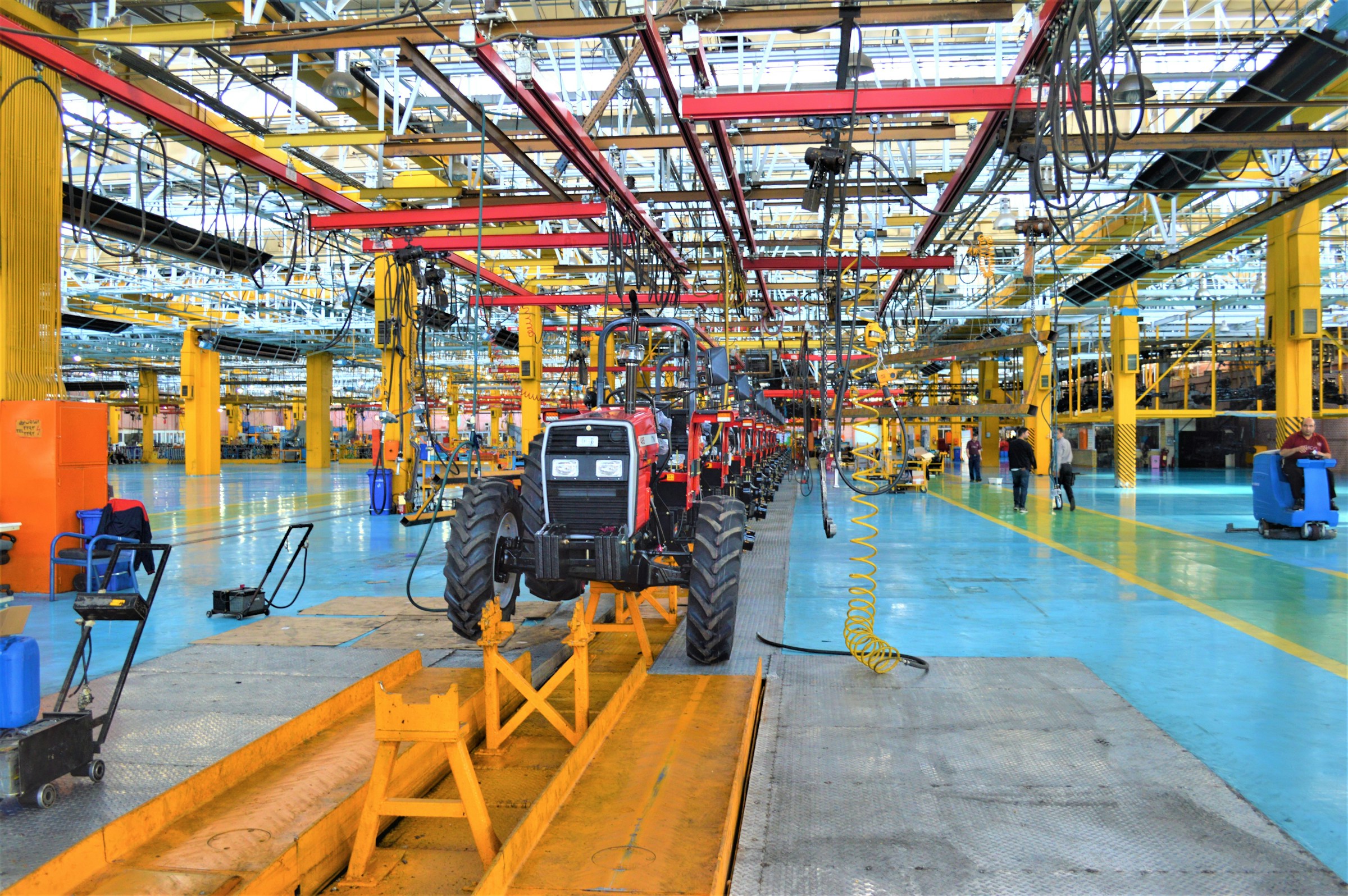How can edge AI be used to enhance real-time decision-making in manufacturing?

In today’s fast-paced manufacturing environment, the ability to make real-time decisions is critical. As technology advances, edge computing and artificial intelligence (AI) are revolutionizing traditional manufacturing processes. At the core of these advancements lies the edge AI, which combines the power of AI with edge computing to process data locally on edge devices. This technological leap empowers manufacturing industries to optimize operations, ensure quality control, and enhance efficiency. In this article, we delve into how edge AI is transforming real-time decision-making in manufacturing.
The Integration of Edge AI in Manufacturing
The integration of edge AI in manufacturing is reshaping the industry by enabling real-time data processing and decision making. Conventional cloud computing systems are often hindered by latency and bandwidth limitations. Edge AI, however, processes data on localized edge devices, ensuring faster and more efficient data handling.
Cela peut vous intéresser : What are the considerations for deploying AI-driven chatbots for customer service?
By incorporating edge AI into manufacturing systems, companies can reduce dependency on centralized data centers. This allows for quicker decisions based on real-time data analysis. Predictive maintenance, for example, becomes more effective when data is processed locally, enabling immediate responses to potential equipment failures. The integration of edge AI thus minimizes downtime and enhances overall operational efficiency.
Moreover, edge AI supports data privacy and security. Sensitive data remains within the manufacturing environment, reducing the risk of data breaches. This localized processing also ensures compliance with stringent data protection regulations, a critical aspect in today’s digital age.
Sujet a lire : What are the challenges and solutions in implementing blockchain for digital identity verification?
Edge AI also facilitates machine learning applications on the production floor, enabling intelligent automation. These AI algorithms can detect anomalies, optimize production schedules, and improve supply chain management. By decentralizing the data processing, edge AI empowers real-time decision-making, driving manufacturing efficiency and productivity.
Real-Time Data Processing and Decision Making
The capability of edge AI to process data locally on edge devices is a game-changer for real-time decision making. Traditional systems often suffer from latency issues due to the time taken to transfer data to and from cloud servers. Edge computing, however, enables immediate data analysis at the source, significantly reducing response times.
In the manufacturing industry, where every second counts, real-time data processing is crucial. Edge AI can continuously monitor production processes, providing instant feedback and enabling adjustments on the fly. For instance, in the context of quality control, edge AI systems can detect defects in products as they are being manufactured. This immediate detection allows for corrective actions to be taken before the defective products proceed further along the production line, thus saving time and reducing waste.
Edge AI also enhances decision making through advanced algorithms that analyze data in real-time. These algorithms can predict equipment failures, optimize production schedules, and even recommend adjustments to improve product quality. By enabling real-time data analysis and decision making, edge AI helps manufacturers respond more swiftly and effectively to changes in the production environment, ensuring efficiency and productivity.
Moreover, edge AI's capability to process time-sensitive data locally ensures that decisions are based on the most current information available. This real-time processing enables manufacturers to maintain optimal operational performance and quickly address any issues that arise, thereby enhancing overall productivity.
Enhancing Security and Data Privacy
Incorporating edge AI in manufacturing not only improves operational efficiency but also significantly enhances security and data privacy. Traditional cloud-based systems often pose security risks, as sensitive data has to be transferred to remote servers. With edge AI, data is processed and stored locally on edge devices, reducing exposure to potential cyber threats.
This localized data processing approach ensures that critical manufacturing data remains within the facility, minimizing the risk of data breaches. By keeping sensitive information on-site, manufacturers can better comply with data protection regulations and maintain control over their valuable data assets.
Edge AI systems also incorporate robust security measures to protect data during processing and storage. These measures include encryption, secure data transfer protocols, and regular security updates. By leveraging these advanced security features, manufacturers can safeguard their data against unauthorized access and cyberattacks.
Furthermore, edge AI enables enhanced data privacy by minimizing the amount of data that needs to be transferred to external servers. This localized data processing approach reduces the risk of data interception during transmission, ensuring that sensitive information remains confidential.
By prioritizing security and data privacy, edge AI not only protects valuable manufacturing data but also builds trust with customers and stakeholders. This enhanced security and data privacy ultimately contribute to the overall integrity and reliability of manufacturing operations.
The Role of Edge AI in Predictive Maintenance and Quality Control
Edge AI plays a crucial role in predictive maintenance and quality control, two critical aspects of manufacturing that directly impact productivity and operational efficiency. By leveraging advanced AI algorithms and real-time data processing, edge AI enables manufacturers to predict equipment failures and ensure product quality.
Predictive maintenance involves monitoring the condition of equipment and predicting potential failures before they occur. Edge AI enhances this process by analyzing data from sensors and other monitoring devices in real-time. By processing this data locally, edge AI can quickly identify patterns and anomalies that indicate potential equipment issues. This early detection allows for timely maintenance interventions, reducing downtime and extending the lifespan of machinery.
In the context of quality control, edge AI systems can continuously monitor production processes and detect defects in real-time. By processing data locally on edge devices, these systems can provide immediate feedback and enable corrective actions to be taken on the spot. This ensures that defective products are identified and addressed before they reach the end of the production line, reducing waste and improving overall product quality.
Edge AI also enables advanced machine learning applications for predictive maintenance and quality control. Machine learning algorithms can analyze historical data and identify trends and patterns that indicate potential issues. By continuously learning from this data, these algorithms can improve their accuracy over time, enhancing the effectiveness of predictive maintenance and quality control efforts.
The role of edge AI in predictive maintenance and quality control ultimately enhances the overall efficiency and reliability of manufacturing operations. By enabling real-time data processing and decision-making, edge AI helps manufacturers maintain optimal operational performance and ensure the highest levels of product quality.
Empowering Real-Time Decision Making in the Manufacturing Industry
Edge AI empowers real-time decision making in the manufacturing industry by enabling immediate data analysis and providing actionable insights at the edge of the network. This real-time capability is particularly valuable in an industry where timely decisions can significantly impact productivity and efficiency.
By processing data locally on edge devices, edge AI systems can provide instant feedback and enable manufacturers to make informed decisions on the spot. For example, in the context of supply chain management, edge AI can monitor inventory levels and track the movement of materials in real-time. This real-time visibility allows manufacturers to optimize inventory levels, reduce excess stock, and ensure timely replenishment of materials.
Edge AI also enhances real-time decision making by enabling advanced artificial intelligence and machine learning applications. These applications can analyze data from various sources, identify trends and patterns, and provide recommendations for optimizing production processes. By leveraging these insights, manufacturers can make data-driven decisions that improve operational efficiency and enhance overall productivity.
Moreover, edge AI systems can integrate with other smart manufacturing technologies, such as IoT devices and automation systems, to provide a comprehensive view of the production environment. This integration enables seamless communication and coordination between different systems, further enhancing real-time decision making.
By empowering real-time decision making, edge AI helps manufacturers respond more swiftly and effectively to changes in the production environment. This agility is critical in a competitive industry where the ability to quickly adapt to new challenges and opportunities can make the difference between success and failure.
In conclusion, edge AI is revolutionizing the manufacturing industry by enabling real-time decision-making and enhancing operational efficiency. By processing data locally on edge devices, edge AI minimizes latency issues and provides immediate feedback, empowering manufacturers to make informed decisions on the spot. This technology plays a crucial role in predictive maintenance and quality control, ensuring optimal operational performance and product quality.
Furthermore, edge AI enhances security and data privacy by keeping sensitive data within the manufacturing environment and incorporating robust security measures. By integrating advanced AI algorithms and machine learning applications, edge AI provides actionable insights that drive productivity and efficiency.
In a rapidly evolving industry, the ability to make real-time decisions is critical. Edge AI empowers manufacturers to respond swiftly to changes, optimize production processes, and maintain a competitive edge. As technology continues to advance, the role of edge AI in manufacturing will only grow, transforming the industry and setting new standards for efficiency and productivity.
Remember, the future of manufacturing lies at the edge, where real-time data processing and decision making converge to create a smarter, more efficient production environment.
